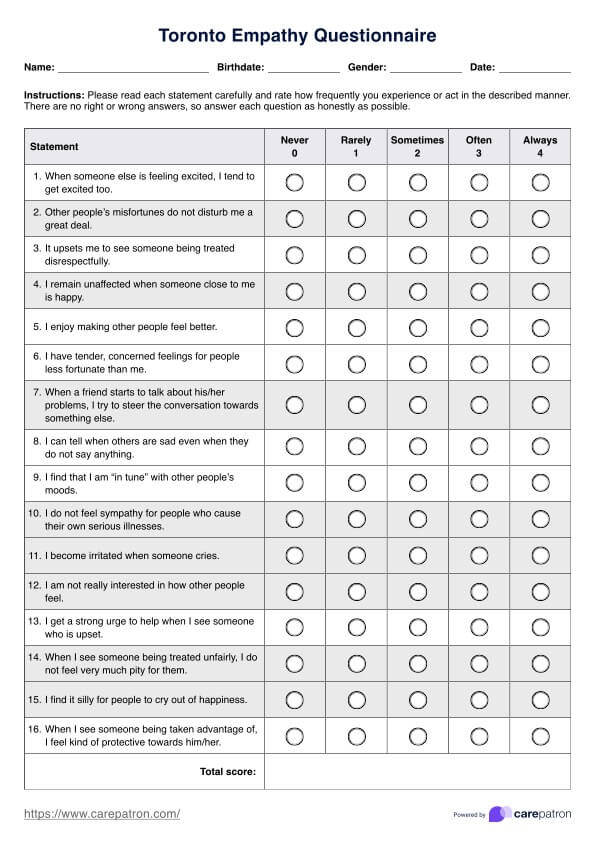The Toronto Empathy Questionnaire is a tool used to measure how much empathy a person feels towards others in different situations.

Toronto Empathy Questionnaire
Download this Toronto Empathy Questionnaire to assess emotional empathy in patients effectively.
Use Template
Toronto Empathy Questionnaire Template
Commonly asked questions
To score the Toronto Empathy Questionnaire (TEQ), assign points based on responses: Never (0), Rarely (1), Sometimes (2), Often (3), and Always (4). For negatively worded questions, reverse the scores before summing, with total scores ranging from 0 to 64. Scores of 45 or higher indicate higher empathy.
Cognitive empathy involves understanding another person's perspective or thoughts, while emotional empathy describes feeling and sharing others' emotions.
EHR and practice management software
Get started for free
*No credit card required
Free
$0/usd
Unlimited clients
Telehealth
1GB of storage
Client portal text
Automated billing and online payments











